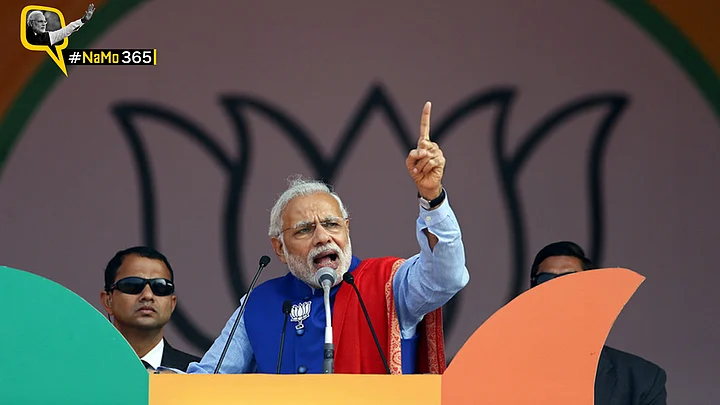The corridors of power have always fascinated those outside government. On the first anniversary of the Modi government it is time to consider how much things have changed in the bureaucracy’s functioning and what is at stake.
Joie de Vivre
The Prime Minister’s first interaction shook up a weary, worried, and distrustful senior bureaucracy. By reaching out to individual secretaries and making his goals clear, Narendra Modi won many admirers. They were starry-eyed in conversation, and euphoric on social media.
Undoubtedly Narendra Modi’s desire to accelerate merit-based decision making came as a shot in the arm after years of dualism of control, mixed signals, and procrastination. Senior civil servants felt that their dignity had been restored. However, the lower levels in government and the general public did not entirely share the excitement.
All That Changed, did it all Change with Modi?
Three conditions that have changed in the last 13 years and impacted on the morale and functioning of the civil service are attributable to previous governments. First, the position of the National Security Adviser (NSA) was imported from the American presidential system, even though India is a parliamentary democracy.
With this creation of the Vajpayi government, matters related to internal and external security were hived off from the Cabinet Secretariat and vested in a separate power centre — combining the office of the Principal Secretary to those of the PM and NSA. The office was later bifurcated by Manmohan Singh in 2004 by separating the roles of the Principal Secretary and NSA — the Cabinet Secretary lost his preeminence and clout.
The second big change came in 2002 when it was decided to give a fixed two-year term to the Cabinet Secretary, which with subsequent governments further extended by one, two and even three extensions. The Constitution, the All India Service Act, and the Civil Services rules never envisaged that the head of the Civil Services would himself be a superannuated officer on repeated extensions.
And finally the PM has begun direct interaction with the secretaries without the leadership roles of ministers and the Cabinet Secretary being apparent — divided accountability has resumed, but the form is different.
What the Future Holds
The long-term effects of these changes are yet to be tested. The central bureaucracy has been accustomed to being steered not by PMs, but through their ministers, and the Cabinet Secretary as the chief points-person. With notable exceptions, until coalition governments came, the cabinet secretaries all possessed unquestioned seniority, great experience of key ministries and of having run a big state.
Such a structure, though envisaged in the Constitution, is superfluous in the states where the CM is quite simply all-in-all. Assisted by a single hand-picked Chief Secretary, and a handful of trusted officers, the CM has the power to implement, or change anything in the administration, at will. The bureaucracy falls in line, and strong CMs with a vision and commitment, such as Modi, are known to have transformed their states.
Towards a Competent Bureaucracy
But this system does not work for the Central Government, where the bureaucratic structure requires legal, financial, and interdepartmental co-ordination and support from large, unwieldy organisations driven by their own priorities and philosophy.
Managing the Parliament, diktats from courts, along with a 24x7 media vigilance makes it difficult to work quickly, and in tandem. To extract work, it is essential that a man who understands the system and has the requisite stature and experience acts as the ring leader, or more appropriately the conductor of an orchestra.
The present Cabinet Secretary is retiring after three extensions like his predecessors. If the system is to function as it was designed, the man with the best credentials and sufficient years of active service left should be positioned — not at the pleasure of the government — for a fixed term as a regular member of service. He should be given the freedom to function as he knows the predilections, not just of the top tiers, but the entire bureaucratic labyrinth.
The parliamentary system of governance must not be compromised by default. If a national consensus so decides, steps are needed to change to a presidential system. We cannot have the best of both worlds without amending the Constitution. This is neither fish nor fowl!
(The writer is a former Delhi Chief Secretary)
